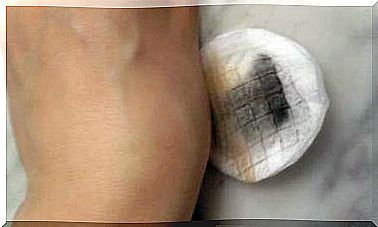Stomach Swelling – When To Worry?

Abdominal swelling is a very common ailment. Its consequences are usually not very serious, but it can have a significant impact on quality of life. As a result, more than half of those with bloating have to make changes to their daily routines. In this article, we explain why the stomach swells and when to worry.
There are as many interpretations of the severity of abdominal edema as there are. For some, the stomach swells only temporarily and doesn’t bother it any more, while for others it can be an everyday problem.
Previous knowledge of abdominal edema
Abdominal bloating is also often referred to as abdominal bulging, which , however, does not mean the same thing.
Medicine distinguishes between swelling and bloating. Swelling refers to a person’s personal knowledge that he or she has. Abdominal bulging, on the other hand, means an objective observation of abdominal area growth that can be verified by physical examination.
We also want to emphasize that when the stomach swells, there is no question of being overweight or accumulating fat in the abdominal area. Both overweight and slim people experience bloating.
According to data published in the Journal of Neurogastroenterology and Motility in 2013, one third of the population has experienced symptoms caused by bloating. Abdominal edema is most common in women, much more so than in men.
Causes of abdominal edema
As Dr. Edith Pérez de Arce says, the most common cause of bloating is too much food. This is a good quality and temporary cause that does not cause its major complications.

However, there are many other reasons why the stomach swells.
- Flatulence. When intestinal gases are allowed to accumulate without being able to escape.
- Irritable Bowel Syndrome (IBS). The bowel function of this ailment is slowed.
- Accumulation of fluid in the abdominal cavity. This is a serious cause that should be treated immediately.
- Pregnancy. During pregnancy, intestinal function may also slow down and gas production increase.
- PMS symptoms. Abdominal edema may be one of the symptoms of PMS that a woman may experience before menstruation begins. While it is not anything more serious, it is nevertheless unpleasant.
- Lactose intolerance. Because the intestine is unable to digest lactose properly, the fermentation process in the digestive tract increases.
Swelling of the stomach – when to worry?
Almost always bloating is of good quality. It can only take a few hours, and it will pass without having to do anything special about it. However, there are also situations where bloating may be a sign of something more serious.
It is worth watching if the abdominal swelling just goes on and on. In benign cases, abdominal edema should not last longer than a day. In life-threatening cases, the swelling of the abdomen increases sharply. In the case of chronic ailments (such as dyspepsia), symptoms can be monitored for 12 weeks, according to the 2014 Revista de Ciencias Médicas de Pinar del Río .

These 12 weeks also apply to celiac disease or malabsorption. These diseases are also associated with diarrhea and significant digestive changes. Gastroenteritis, or stomach disease, also manifests as bloating. In addition, diarrhea, vomiting and even fever may also occur.
Concerns should be raised if there is severe pain associated with the symptoms, as the doctor should rule out cirrhosis (late stage of liver scarring), tumor (abnormal patti or tumor in the tissue), clots or blood clots. A person’s health history and risk factors may provide an indication for making a diagnosis.
How to reduce bloating?
Since the most common cause of bloating is copious and poorly implemented eating, there are certain actions that can be taken to reduce the incidence of this problem. The American College of Gastroenterology recommends:
- Adding fiber to your diet. Fruits and vegetables help the gut to function thanks to the fiber they contain. If the stomach swells due to constipation, it is advisable to increase fiber intake.
- Physical activity. Playing sports improves the functioning of the digestive tract, helping to remove intestinal gases from it.
- Hydration. When you drink enough water, the intestinal mucosa stays hydrated. It is important to drink still water.
- Avoid chewing the jar. Excessive grinding of the discharge can cause gases in the digestive tract.
- Eat slowly. Eating large meals quickly converts digestive movement. Doctors recommend eating slowly and taking time for each bite.
See your doctor regularly
If you have any questions about bloating, you should see your doctor. We do not recommend thinking that this is just some ordinary and common ailment.
If suspicion creeps into your mind because the symptoms last for an unusually long time or the swelling is associated with other symptoms, make an appointment with your doctor. In the meantime, you can follow the eating recommendations in this article to alleviate your discomfort.









